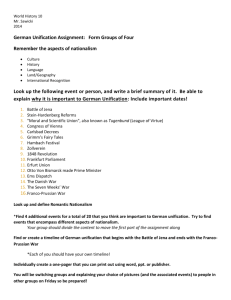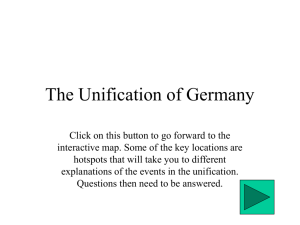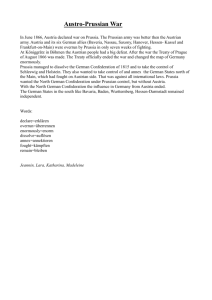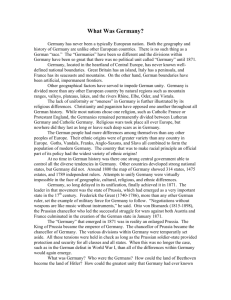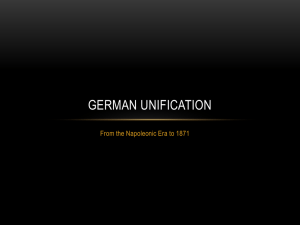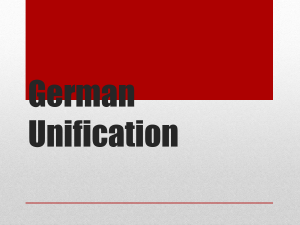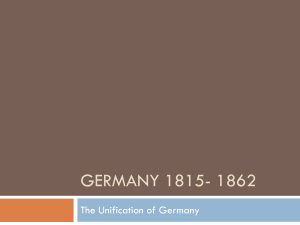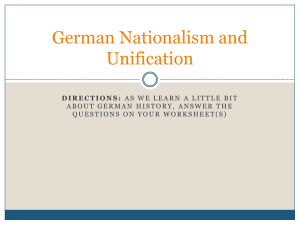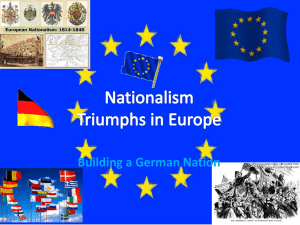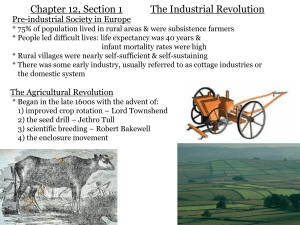German Nationalism: 1815-1850 - Growth Factors
advertisement
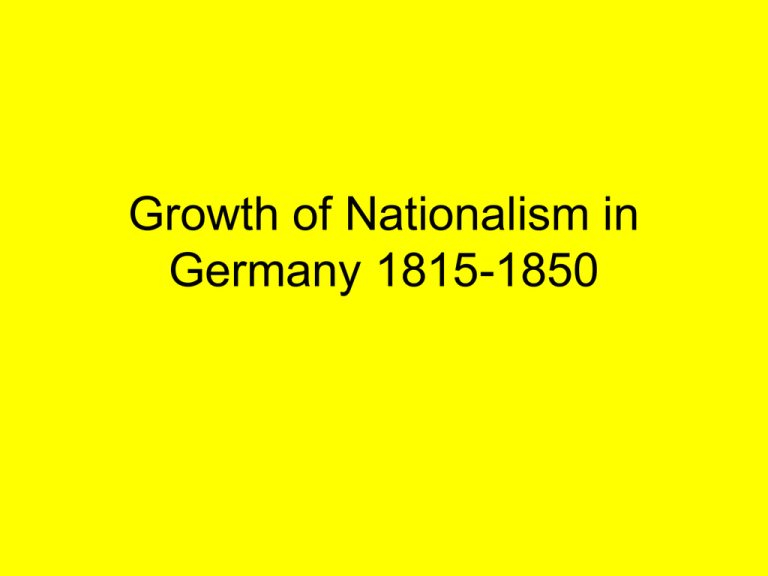
Growth of Nationalism in Germany 1815-1850 Economic Factors • In 1815, Prussia gained coal and iron resources and access to the River Rhine. • To encourage trade Prussia formed a customs union in 1818 that by the 1830s was called the Zollverein. • The Zollverein was a prototype of a ‘united Germany’ under Prussian control that excluded Austria – Kleindeutschland. • The Zollverein also helped Nationalism to spread. • The new railway network, centred in Prussia, also helped to bring German states together. • William Carr has called the Zollverein “The mighty lever of German unification.” Social Factors • The growth of the population, industrialisation and urbanisation, created a large, discontented urban working class • Appalling working and living conditions led to social unrest and demands for political reform. • Improvements in transport made people more aware of the wider world. • The development of industry led to the growth of a wealthy middle class. They had economic power but no politcal power. They pressed for political reform and saw unification as the only way forward. Political Factors • In 1815 Metternich became worried about the growth of Liberal and Nationalist student societies. • In 1819 Carlsbad Decrees banned student societies and censored newspapers. The following year the power of the Diet was increased so that soldiers could be ordered to stop the spread of new ideas in any of the German States. • Revolutions of 1848 were the first attempt to challenge Austria’s political power in Germany. A new German parliament was started in Frankfurt but it failed. • In 1850 the humiliation of Olmutz seemed to crush Prussia’s political ambitions and restore Austrian power. Cultural Factors • Fichte described ‘Germany’ as the fatherland where all people spoke the same language and sang the same songs. • German poets and authors, such as the Grimm brothers, and composers such as Beethoven, encouraged feelings of national pride in the German states. • However Golo Mann wrote that most Germans ‘seldom looked up from the plough’. He doubted the influence of artists most Germans knew nothing about. • In 1830 anti-French feelings promoted ‘the watch on the Rhine’ and nationalist festivals such as Hambach (1832) also encouraged nationalist feelings.
